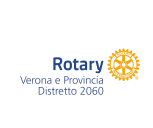One of the approaches for treating the genetic mutations underlying cystic fibrosis (CF) is gene therapy, particularly genome editing (GE) technologies such as CRISPR-Cas base editing (BE). BE allows specific modifications to be made in the DNA by replacing the faulty DNA letter with the correct one. However, major challenges remain, especially regarding delivering these bulky base editors to the correct lung cell within an organ as large as the lung.
This project aims to develop novel, smaller base editing strategies to treat CF mutations that are not responsive to current therapies.
The researchers have two main objectives:
1) To develop compact adenine base editors (ABEs), focusing on the R553X nonsense mutation. Smaller, more compact GE tools are expected to package more efficiently into lipid nanoparticles (LNP) and cross biological barriers more effectively, enhancing delivery to the correct lung cells.
2) To identify and characterize the most effective LNP formulations that target the lung and deliver these compact ABEs to the intended target cells within the airway epithelium.
To achieve these goals, advanced models will be used, including a rodent ex vivo lung perfusion system. Researchers will also assess the immunogenicity of LNP formulations, ensuring that treatments do not worsen the already inflamed CF lung environment.
The project aims to advance gene therapy for cystic fibrosis by expanding the applicability of GE to a wider range of CFTR gene mutations. The improved delivery methods and enhanced gene editing toolbox could offer more effective treatment options for people with CF.
Project Supporters
Delegazione FFC Ricerca di Acqui Terme

€ 100.000
Delegazione FFC Ricerca di Vicenza

€ 36.500

€ 28.000
